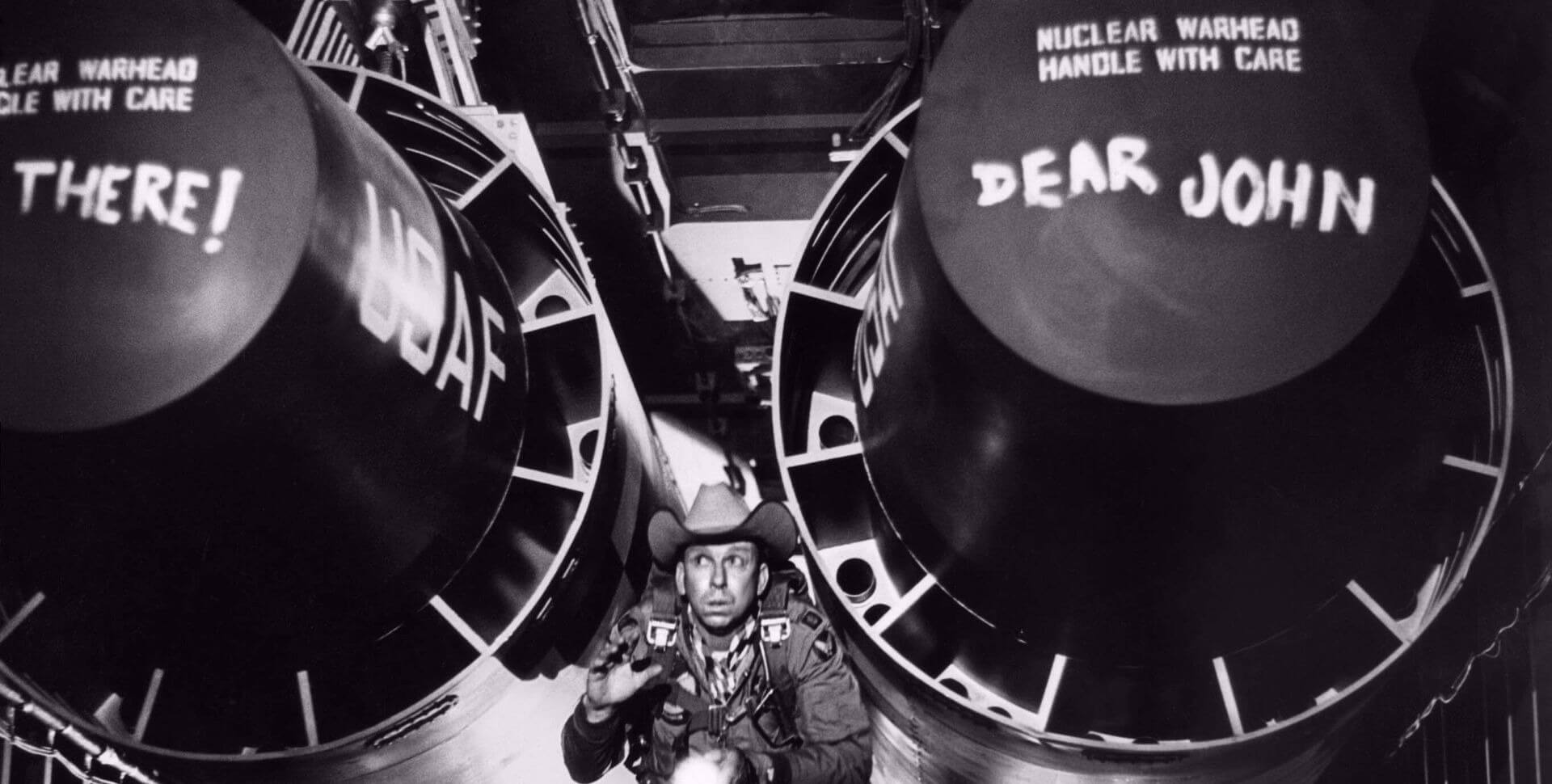Dr. Strangelove or: How I Learned to Stop Worrying and Love the Bomb: Satire is important. It is the artistic freedom to ridicule the political and social worlds which expose and criticize them. It is often a time of heated global conflict (or in this case, a lack of heat) that brings about the stab, the punt, the newspaper clipping cartoon, or one of the most respected political comedies ever created. An artist will soak up contemporary dynamics, values, and perspectives and then present these new realities to a cinema full of chortles, hysteria, and LOLs. In this instance, Stanley Kubrick’s Dr. Strangelove is exactly that. A reality, albeit humorously exaggerated, that underpins the fears and anxieties of the Cold War Era. How can you tell if a political satire is still relevant? You still laugh at it. Political satire is more important than ever in 2017, and a look back at one of Kubrick’s finest works - and how he would shine a light on the powerful people in his world - may help us further appreciate satire’s role today.
A most memorable performance. Kubrick's screenplay, co-written by author Peter George and SNL (Saturday Night Live) writer Terry Southern, is riddled with satirical affair and ingenious commentary on the global political agenda. Masculinity, and more specifically misguided men and their sexuality, manifest in a multitude of fashions. Peter Sellers appears in the film depicting three distinct characters - Captain Lionel Drake, a British Exchange Liaison Officer, US President Mr. Merkin Muffley, and Dr. Strangelove, who is a wheelchair-bound German scientist with an unruly mechanical hand - regularly making involuntary Nazi salutes. It is his performances that showcase the potential circus global conflict can be. Jets, torpedos, and missiles are displayed as both instruments of war and phallic objects, and to Kubrick, these images serve as a perfect backdrop to an all too real situation where these types of weapons, or a wrong button, are pressed by the wrong people. This film puts powerful Americans up against powerful Russians in a war room, fighting over who won the ‘Space Race, the Arms Race, and the Peace Race’.
We’re all M.A.D here. Nihilism reverberated amongst society following the Cold War, and meaningless military actions began to seem highly ironic and satirical. Dr. Strangelove satirically presents the nuclear tension between the U.S. and the Soviet Union and highlights the range of procedures and strategies involved, including the pursuit of credible deterrence, as meaningless, masculine calamities. The doomsday device in Dr. Strangelove is not realistic, yet it can be observed as akin to mutually assured destruction (MAD), making almost everything in the film historically plausible. During the Cold, War the Soviet Union and the U.S. were exercising nuclear deterrence and introducing illegalities through fallback strategies. Dr. Strangelove defines deterrence when he says: “Deterrence is the art of producing in the mind of the enemy…the FEAR to attack!” This film has become more and more relevant as the United States tries to keep tabs on who in the world has nuclear weapons, who should be building them, and what they plan to do if someone else decides to push the button first. The character of Ripper, played by Sterling Hayden, is a macho warmonger who connects the means of shooting a bullet with the sexual act of ejaculation and believes that politicians lack the training and strategic skills required to pull off nuclear combat effectively. “War is too important to be left to politicians”.
Covfefe and Beyond! Satire is the great equalizer - taking complex concepts, plans, and political jargon and presenting them in a thought-provoking way. Kubrick’s cinematic pieces are sometimes horrifyingly real. Columbia Pictures released Dr. Strangelove with this all too suitable disclaimer: ‘It is the stated position of the United States Air Force that their safeguards would prevent the occurrence of such events as are depicted in this film. Furthermore, it should be noted that none of the characters portrayed in this film are meant to represent any real persons living or dead.’ It is the very political statements that we get from Trump over Twitter, or Putin shirtless on a horse, that are all reappropriated, voluntarily or not, for satirical merit on platforms such as SNL and various other daily and tonight shows. In today’s current political climate, it is sometimes all too easy to forget that there has always been ridiculed and attempts of exposure thrust upon the powerful people who lead our nations. A healthy dose of satire can go a long way to inform the public and keep order in balance.
Dr. Strangelove reverberates the necessity for satire through the ages and delivers a film worth re-watching again and again. Full of humor, excellent character performances, and an unbelievable grasp on satirical dialogue and the camera’s ability to capture golden improvisational performances that lend well to the overall uncontrollable and ludicrous context of the film and its subject matter. This director and this film will always be one of the great cinematic landmarks of the 20th century.

Watch Dr. Strangelove
